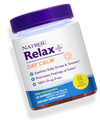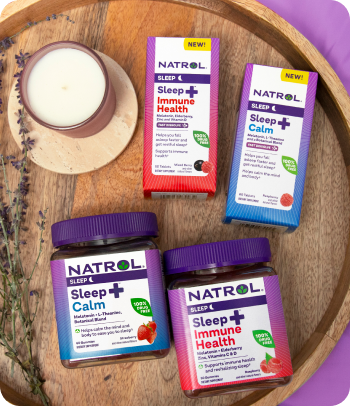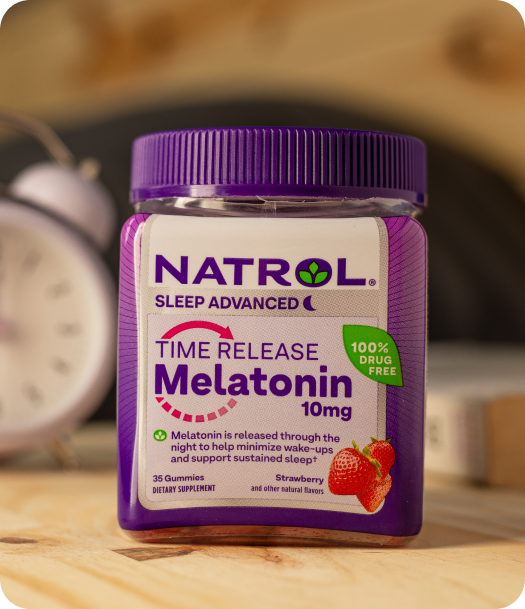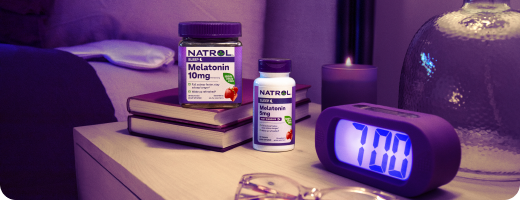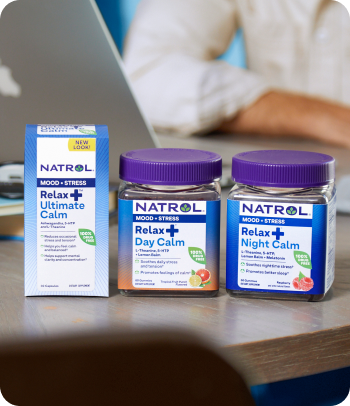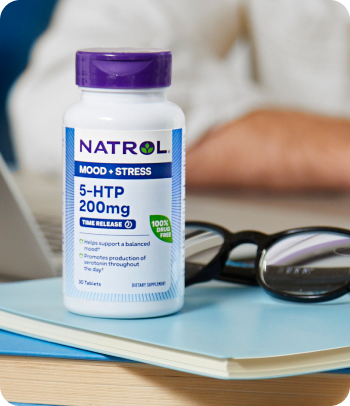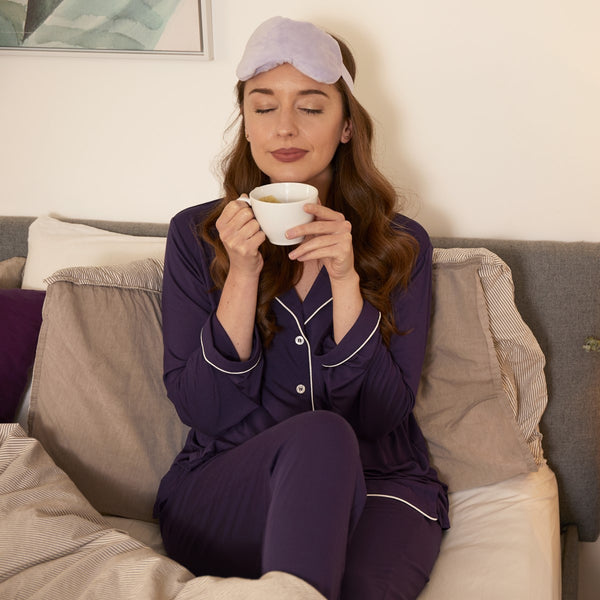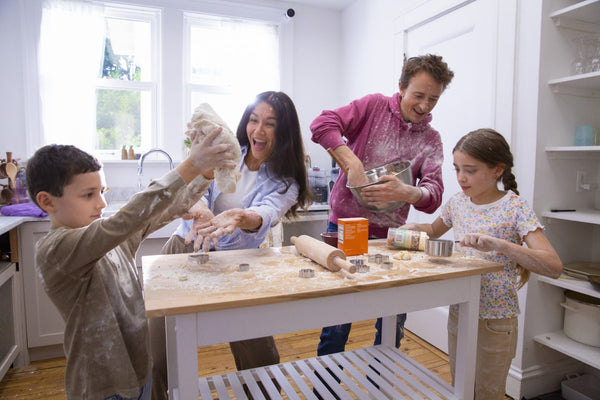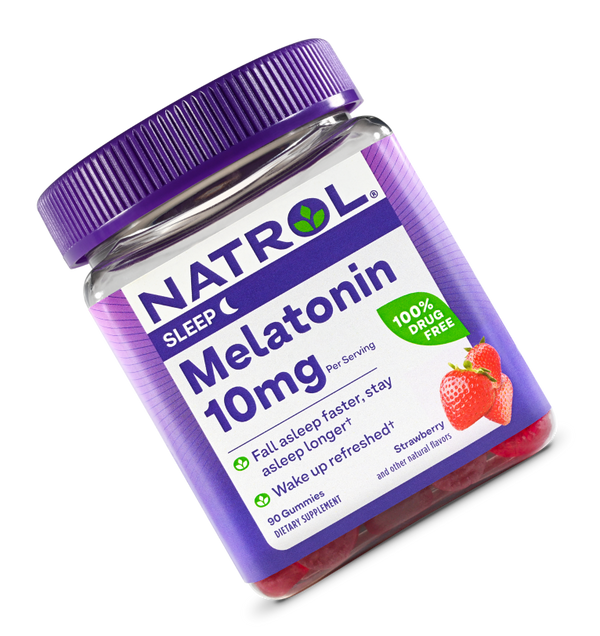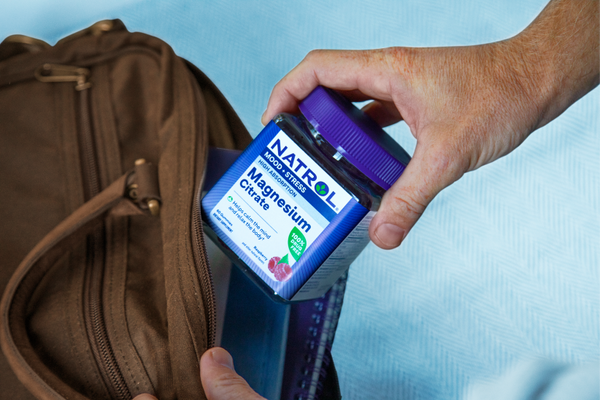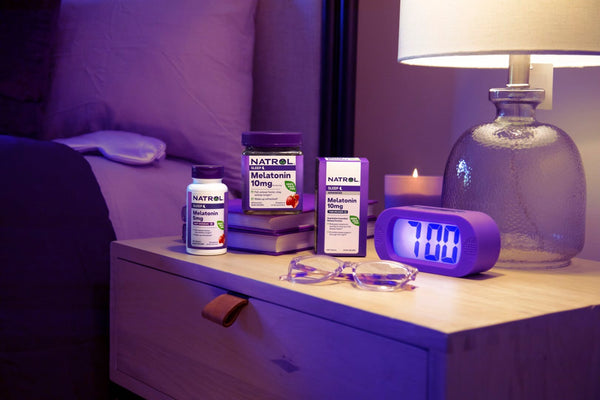New Natrol Survey Connects the Dots Between Better Sleep and Less Stress
We know the relationship between sleep and stress is bidirectional, meaning poor sleep can increase stress levels and stress can negatively impact sleep quality. Sleep plays such a critical role in regulating stress levels by maintaining hormonal balance, processing emotions, promoting physical restoration and much more. It’s why Natrol is on a mission to help everyone wake up to the fact that we may be stuck in an endless sleep and stress cycle.
A recent Natrol survey taken by 2,000 American adults shows that 9 out of 10 (92%) agree they’re less stressed and in a better mood when they get a good night’s rest. Unfortunately, reports show that nearly half (48%) of people say they have trouble sleeping because of stress.
It's no wonder we’re tired!
Adults report feeling drowsy (47%), unmotivated (35%), irritable (33%), depressed, anxious and stressed (31%) when they don’t get enough quality sleep considering they report sleeping poorly three out of seven nights a week, on average.
There’s still time to reconcile those favorite late-night habits.
Despite knowing the importance of the connections between stress and sleep, as well as sleep and mood, only four in ten adults surveyed said they would give up their late-night TV (44%), late night snacking (43%), smartphone (41%), or online scrolling (40%) in exchange for better sleep and reduced stress the next day.
Feeling moody anyone?
According to the survey, moods significantly improve after sleeping well with eight in ten (82%) adults reporting feeling their best after a great night’s sleep. Two-thirds of adults are in a bad mood when they do not sleep well; lack of sleep leads to fewer than one in ten adults being in an excellent mood the next day.
What’s keeping us up, and down, at night?
Adults report averaging only six hours of quality sleep per night; females (30%) are more likely than males (22%) to get only four or five hours of sleep a night. Adults’ sleep is just as negatively impacted by having to use the bathroom (34%) as it is by having anxiety about the future (34%).
Adults are trying many remedies in hopes of improving sleep quality, such as reducing caffeine (38%), reducing screen time (31%) and taking drug-free sleep aids (28%) being the most prominent.
Whether from demanding work assignments, financial stress, or revenge bedtime procrastination, there are countless reasons preventing us from getting the uninterrupted, restorative rest we need. Good, restorative sleep is imperative to help everyone’s ability to manage stress, but also helps us feel more present each and every day.
So, who is ready to rethink the relationship between sleep and stress and break the cycle?




